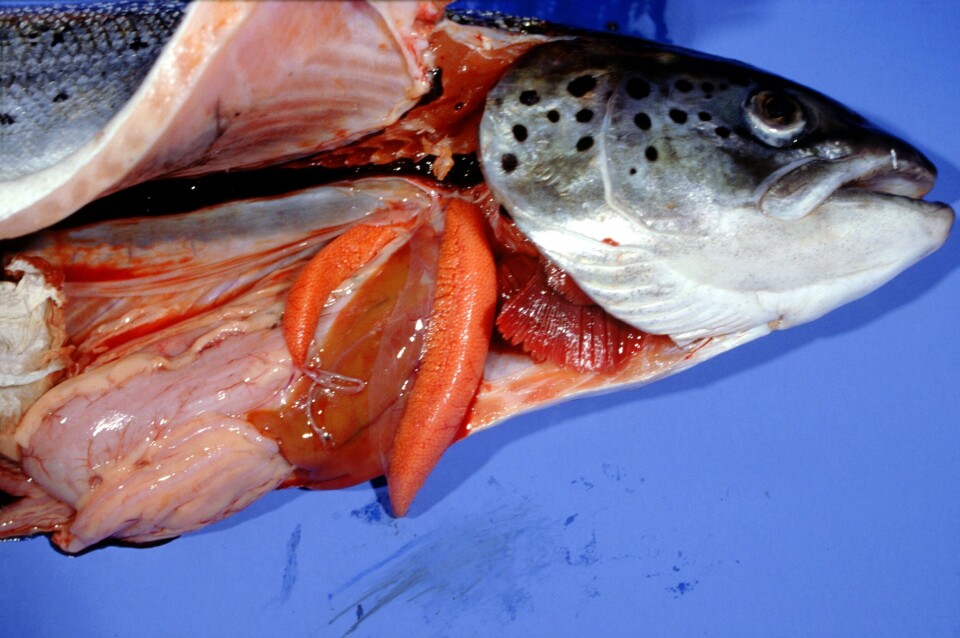
SRS resistance identified
Researchers at the University of Chile have identified the genetic factors which determine that some families of salmon are highly resistant to SRS while others are susceptible to infection.
Pisciricketssia salmonis is the causal agent of Salmon Rickettsial Syndrome (SRS), which affects salmon species and causes severe economic losses. Selective breeding for disease resistance represents one approach for controlling SRS in farmed Atlantic salmon. Knowledge concerning the architecture of the resistance trait is needed before deciding on the most appropriate approach to enhance artificial selection for P. salmonis resistance in Atlantic salmon. The purpose of the study was to dissect the genetic variation in the resistance to this pathogen in Atlantic salmon.
2,601 Atlantic salmon smolts were experimentally challenged against P. salmonis by means of intra-peritoneal injection. These smolts were the progeny of 40 sires and 118 dams from a Chilean breeding population. Mortalities were recorded daily and the experiment ended at day 40 post-inoculation.
Genome Wide Association Analysis indicated that resistance to P. salmonis is a moderately polygenic trait. There were five SNPs in chromosomes Ssa01 and Ssa17 significantly associated with the traits analysed. The proportion of the phenotypic variance explained by each marker is small, ranging from 0.007 to 0.045. Candidate genes, including interleukin receptors and fucosyltransferase, have been found to be physically linked with these genetic markers and may play an important role in the differential immune response against this pathogen.
Due to the small amount of variance explained by each significant marker the research team concluded that genetic resistance to this pathogen can be more efficiently improved with the implementation of genetic evaluations incorporating genotype information from a dense SNP array.
To read the entire article from the original source see magazine BMC Genomics here.























































